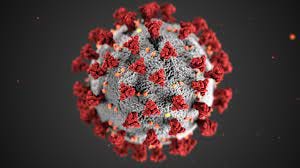Now That That’s Over, How About Covering Public Health?
We need much more reporting before the next emergency
Welcome to Second Rough Draft, a newsletter about journalism in our time, how it (often its business) is evolving, and the challenges it faces.
This is my third year teaching a course about the press to graduate students in public health, and my fourth affiliated with Harvard’s TH Chan School of Public Health. It’s also the fourth year I’ve written this newsletter, and I know that columns that touch on the pandemic and its repercussions and aftermath attract far fewer readers than most of the rest of what I write. Nevertheless, this is another such column, and I beg your indulgence—maybe even your attention.
I waited to write this column until after the election, because the point I wanted to make truly is nonpartisan, and would be equally valid no matter who won.
What I want to talk about this week is our national insistence on not thinking about the pandemic, and how determined we seem to be to learn nothing from it, even after the deaths of 1.2 million Americans from COVID-19. Yes, we are probably still collectively angry and grieving, but in the grief, we have become paralyzed, which is dangerous. The press, it seems to me, has been very much a part of this problem, and could be a big part of the solution as we at least turn some of our attention back from politics to policy.
A consensus on inaction
What I see is this: Pretty much everyone who understands the system believes that public health administration in this country needs to be significantly reorganized, both at the federal level, where the Department of Health and Human Services remains a collection of competing fiefs, with White House coordination limited and fading, and between the federal and state and municipal levels, where information flows are haphazard and poorly coordinated, where local disparities have not been adequately considered and where localities remain left to compete when critical resources become scarce.
Yet, after the greatest public health crisis in a century, nothing of genuine importance has been done about these problems. The Biden Administration came and went without proposing the necessary reorganization. The Administration and a Congress that could agree on precious little did agree that we shouldn’t seriously study what went wrong in 2020, steadfastly refusing to appoint a national commission when we so badly needed one. Neither Republicans in the House nor Democrats in the Senate sought to upset this equilibrium of passivity. Neither of the two presidential nominees talked about the issue; neither seems to have put any significant effort into preparing to work more effectively if elected.
The appalling boom-and-bust cycle of public funding for public health that has followed previous crises with AIDS, anthrax, H1N1 and Ebola has been permitted to recur, even when the cost in human life has been so much greater. (US AIDS deaths have been fewer than 800,000 over 44 years, compared with 1,200,000 for COVID in less than five years.)
At the level of politics, I confess that I simply don’t understand this. Even if Donald Trump was given an apparent pass on his gross mismanagement of the pandemic, with most voters seemingly concluding that it was just colossal bad luck that the disease struck on his watch, does anyone think that the American people would be so forgiving if we confronted another deadly public health crisis anytime soon? I certainly do not. Yet, the politicians seem unconcerned about this potential vulnerability.
And such a crisis is surely possible—with the chances enhanced by the continuing globalization of risks, including in the insufficiently regulated interaction between humans and animals, in the movement of people across borders, in unevenly overseen biological research and in the opaqueness of many governments, especially China and Russia.
A failure also of the press
What about the press? On public health, “news avoidance” seems to have extended even into newsrooms. The public didn’t want to read about politics or surely about various policy debates until Biden’s withdrawal heightened the drama, but the press provided the coverage anyway. At the same time, even with the widespread outbreaks of H5N1 in US cattle herds, and a persistent if muffled drumbeat of possible cases in humans, we couldn’t seem to rouse ourselves.
I can’t recall a single question to either candidate about pandemic preparedness in any forum, and certainly not in a debate or any network interview. The considerable stores of knowledge amassed in newsrooms about such matters in 2020-21 seem to have been happily cast aside, as if they had amounted to learning about the deployment of mounted cavalry rather than the likely terrain of the next war as well.
All of this is potentially greatly complicated by any significant role in public health matters to be played by Bobby Kennedy. But even in its coverage of him, the press needs to up its substantive game. His suggestion of ending fluoridation of municipal water supplies, for instance, may be something about which reasonable people can differ, as has been recognized for years. (I think it would be a mistake.)
On the other hand, if Kennedy, perhaps speaking from a White House podium, were able to dissuade a sufficient number of parents from the routine vaccination of their own children to undo herd immunity, the result in a few years could be millions of cases of measles and thousands of child deaths. (There were 136,000 deaths from measles worldwide in 2022, most in young children we had failed to vaccinate.) These are the sorts of distinctions about which the political reporters covering him need to be informed— and unafraid to report.
The presidential transition has now run through eight of its 75 days. We need to start doing better, to insist on placing the public health questions we know the American people will again urgently care about one day on the news agenda now—when something might usefully be done. Simply put, that is what journalists do.





"Columns that touch on the pandemic and its repercussions and aftermath attract far fewer readers than most of the rest of what I write." I would add that that holds true with all public health reporting. That at least has been my experience in the city I cover, where public health (from needle exchanges to infant mortality to diabetes to community primary care reorganizations) has been an important news story for the decades I've been here. Not sure what the simple answer is beyond 1) Working harder to craft stories that show why it's important, emphasizing human beings while avoiding provider jargon; and 2) Feeling OK about having fewer page views while writing about something that matters.
Excellent article. There is another challenge (perhaps a deeper problem) related to the science underpinning public health interventions. There is a consistent pattern to underinvest in research that would shed light and understanding on the emergence, spread, and eventual management and decline of epidemic and pandemic disease. When a disease emerges, funds are allocated to “fight” the disease, and then as soon as the disease recedes, the funding disappears. The inability to get ahead of the curve, to better understand the ecological underpinnings of disease and why diseases spill over, dooms us to a reactive, rather than a proactive, response.